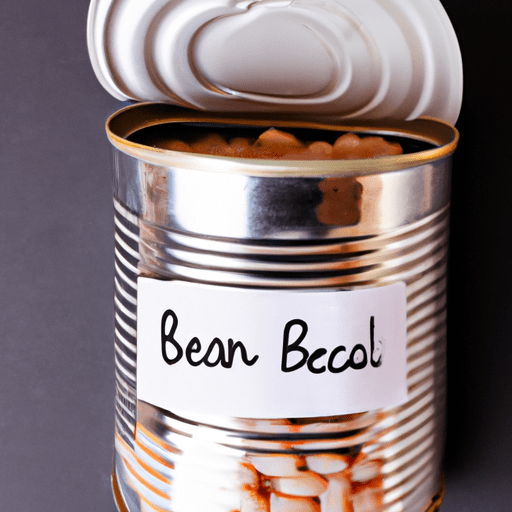Unveiling the Versatility of Canned White Beans
Canned white beans are a kitchen staple that never fails to impress. These humble, yet versatile legumes pack a punch when it comes to flavor, nutrition, and convenience. Whether you’re a seasoned chef or an amateur home cook, canned white beans offer endless possibilities to elevate your dishes. In this article, we’ll explore the taste, uses, nutritional benefits, and captivating history of canned white beans.
Taste and Texture:
Canned white beans have a tender, creamy texture with a subtle earthy taste. Their mild flavor allows them to blend seamlessly into any dish, making them the perfect canvas for a myriad of flavors. From salads to soups and everything in between, these beans adapt beautifully and add a delightful creaminess to your favorite recipes.
Common Uses in Cooking:
The culinary applications of canned white beans are vast, providing an excellent way to incorporate both flavor and sustenance to your meals. Here are a few popular uses:
1. Soups and Stews
Canned white beans lend themselves perfectly to hearty soups and stews. Their soft texture adds body and richness, making them an ideal addition to comforting dishes like Tuscan white bean soup, minestrone, or white bean chili.
2. Salads and Side Dishes
White bean salads are a refreshing and nutritious option for warm weather meals. Toss them with fresh herbs, lemon juice, olive oil, and your favorite vegetables for a light and satisfying dish. Additionally, mashed white beans make a delightful alternative to mashed potatoes as a side dish – creamy, flavorful, and a perfect companion for grilled meats or roasted vegetables.
3. Dips and Spreads
Whip up a delicious white bean hummus or spread to serve as an appetizer or a quick snack. Combined with garlic, tahini, lemon juice, and a drizzle of olive oil, it’s a delightful dip that pairs beautifully with pita bread or fresh-cut veggies.
4. Pasta and Grain Dishes
White beans can be a star ingredient in pasta dishes or grain bowls. Tossed with your favorite pasta, roasted vegetables, and a sprinkle of parmesan cheese, they add a burst of creaminess and protein.
Nutritional Value:
Apart from their great taste and versatility, canned white beans are a nutritional powerhouse. They offer an array of health benefits and are an excellent addition to a balanced diet. Here are some key nutritional aspects of canned white beans:
- Protein: Canned white beans provide an ample amount of plant-based protein, making them a valuable option for vegetarians and vegans.
- Fiber: Rich in dietary fiber, these beans promote digestive health and help maintain stable blood sugar levels.
- Vitamins and Minerals: Canned white beans are packed with essential vitamins and minerals like iron, potassium, magnesium, and folate, contributing to overall well-being.
Interesting History and Facts:
White beans have a rich history that dates back to ancient civilizations. Native to South America, they made their way to Europe during the Age of Exploration. These legumes became an integral part of global cuisine, particularly renowned in Mediterranean and Latin American dishes.
In Mediterranean cultures, white beans hold a cherished place in traditional recipes such as cassoulet, falafel, and hummus. In Latin American cuisine, beans are a fundamental ingredient, featuring prominently in Mexican cuisine with dishes like refried beans and burritos.
Conclusion:
Canned white beans are a true kitchen hero. Their delicate flavor, adaptability, and numerous health benefits make them a must-have pantry staple. Experiment with these versatile legumes in your favorite dishes, and you’ll uncover their fantastic ability to enhance flavor and texture. So, stock up on canned white beans and let your culinary creativity shine!
Interesting Facts about Canned White Beans:
Origin: White beans, also known as cannellini beans or white kidney beans, are native to the Americas. They have been cultivated for thousands of years, with evidence of their consumption dating back to ancient civilizations such as the Aztecs and Incas.
Common Uses: Canned white beans are a versatile ingredient used in various cuisines worldwide. They are particularly popular in Mediterranean and Italian cooking, where they are often used in soups, stews, salads, and as a main ingredient in dishes like pasta e fagioli and cassoulet.
Nutritional Benefits: Canned white beans are a nutritious addition to your diet. They are a good source of complex carbohydrates, dietary fiber, and plant-based protein. They also provide important minerals such as iron, magnesium, and potassium. Additionally, white beans are low in fat and cholesterol-free.
Unique Properties: One unique property of canned white beans is their creamy texture and mild flavor, which allows them to absorb the flavors of other ingredients in a dish. They are known for their ability to add depth and creaminess to soups, dips, and spreads.
Historical Significance: White beans have held a significant place in various cultures throughout history. In ancient Rome, white beans were associated with good fortune and were often used in rituals and ceremonies. During the Great Depression in the United States, white beans became a popular and affordable source of nutrition, earning them the nickname “the poverty bean.”
Additional Information: Canned white beans are a convenient option for cooking because they are pre-cooked and ready to use. However, it’s important to rinse canned beans thoroughly before using to remove excess sodium and any residual liquid or flavorings from the canning process.




Use the share button below if you liked it.
It makes me smile, when I see it.